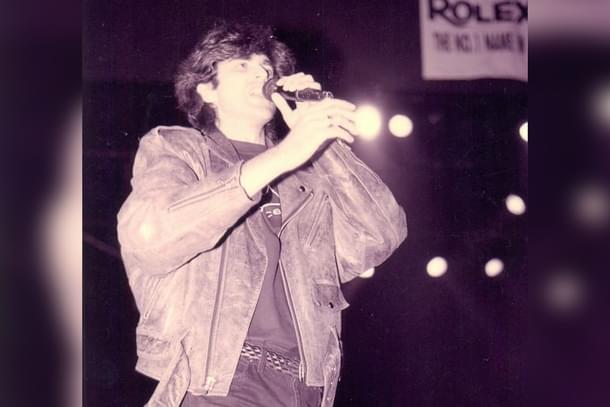Ideas
Is ‘Blasphemy’ Pardonable? When Pakistan Debated The Issue In Pop Singer-Turned-Tablighi Preacher Junaid Jamshed Case
Swati Goel Sharma
Jun 08, 2022, 03:58 PM | Updated 03:58 PM IST
Save & read from anywhere!
Bookmark stories for easy access on any device or the Swarajya app.


Is blasphemy pardonable in Islam? That’s a question Islamic experts debated at length in the Junaid Jamshed blasphemy episode in Pakistan a little less than a decade ago.
A pop music sensation in the 80s, who enjoyed popularity not only in his home country Pakistan, but also in India and, indeed, many parts of the world, Jamshed gave up music to pursue religion.
From a ‘modern’ guy sporting denim jeans, leather jackets and a clean-shaven face, Jamshed left many tongues wagging as he changed his look completely — skull cap, long beard, shaven upper lip and a white kurta-pajama. Jamshed joined Tablighi Jamaat and became a full-time preacher and evangelist of Islam.
Despite his very public association with the cause of his religion, Jamshed landed in a controversy in 2014 when he was accused of blasphemy of Islam’s Prophet Mohammed and his wife Aisha.
Jamshed was booked under Pakistan’s harshest blasphemy law that carries a mandatory death punishment if convicted. Two years later, he was assaulted by a mob. That was a few months before he died in a plane crash. No, no conspiracy theory is attached to the tragedy that killed more than 40 people aboard the plane.
Was Jamshed blasphemous? Did his apology absolve him of the crime? Is apology unpardonable even for Muslims? These were the questions that filled newspaper columns and the Internet that time. Some of the space, thankfully, was also devoted to questioning the need for a harsh blasphemy law in the first place, but that made no difference to the case.
With the ongoing blasphemy row around former BJP spokesperson (now sacked) Nupur Sharma, here is a look at the Junaid Jamshed saga.
Jamshed, The superstar
Jamshed was born on 3 September 1964 in Karachi. His father was an officer in the Pakistan Air Force. He studied at the University of Engineering and Technology in Lahore and, briefly, worked with the Air Force as a civilian contractor. He was part of a music band that performed in colleges in early 1980s.
A profile of him by the BBC says that he was one of the several young musicians inspired by the fame of Pakistani-origin singer Nazia Hasan. The growth of the Pakistani pop music industry happened after the death of military ruler General Mohammed Zia-Ul-Haq in a 1988 plane crash.
The death of Zia, whose reign saw a massive Islamisation drive in Pakistan, sparked a brief era of intellectual liberation that encouraged performing arts to come out of an underground existence, the BBC report says. Arrival of satellite television, of course, boosted the growth.
Jamshed’s pop music band named Vital Signs released their first album around this time, which went on to be a superhit. The album included the song ‘Dil Dil Pakistan’, which attained such a cult status that it’s now called the second national anthem of Pakistan.
A rip-off of the song featured in an Indian film titled Yaadon Ka Mausam in 1990. Called ‘Dil Dil Hindustan’, it was a rather unsavoury number where the singer fantasised Bharat Mata as an attractive woman to be lusted after.
Over the next few years, more songs from the band became huge hits, including Wo Kaun Thi that was also remade in India. In the 90s however the group disbanded. Jamshed launched a solo career and, in 1994, released his debut solo album titled Junaid of Vital Signs. It did well.
Less than a decade later, he quit the pop music industry.
Junaid, The Islamic Missionary
Jamshed’s switch to religion wasn’t as abrupt as some profiles of him make it out to be. After leaving Vital Signs, Jamshed struggled financially, grew frustrated with waning popularity, even filed for bankruptcy in the court, unsuccessfully tried to resume his career in engineering and opened an apparel company named ‘J.’, which sold khaadis, a form of kurta-salwar.
However, that he had become quite religious and prayed five times a day had begun to be reported in the media.
As per an account, while Jamshed had already grown conflicted about religion coming in the way of his music, he was particularly hurt and frustrated after a “failed tour” in Europe after 9/11 attacks. He and his band members were humiliated with questions on their religion and association with terrorism.
In 2000s, he renounced music and became active in Tablighi Jamaat.
It is a controversial Islamic proselytising organisation with headquarters in India’s capital city New Delhi. The organisation was banned last year by Saudi Arabia, which called it “gateway of terror”.
Media had begun calling Jamshed “disco mullah” by then.
In 2007, Pakistan government awarded Jamshed with a civilian honour called Tamgha-e-Imtiaz.
The same year, celebrated Pakistani filmmaker Shoaib Mansoor released a film titled Khuda Ke Liye, where he, as per his interviews, based a key character on Jamshed’s life. Mansoor told the media he was quite close to Jamshed during his music career and was shocked at his transformation.
Interestingly, Mansoor wanted to cast Jamshed in the film. He later told a publication, “…the actor whom I initially wanted in the lead was my close friend Junaid Jamshed. I introduced him on TV and promoted him to become a top musician in Pakistan. When I offered him the role, he said yes eagerly. But then he became a mullah and lost nerve. I lost precious eight months in his dillydallying."
Seven years after this film, Jamshed landed into a massive controversy over blasphemy.
Junaid, The Blasphemer
Jamshed, who as an Islamic preacher was known to push his friends from the music and entertainment industry into religion, earned the notorious tag of a 'blasphemer' in 2014. In one of his sermons, Jamshed narrated an incident from the life of Mohammed, where he is believed to have 'jokingly teased his wife Aisha as someone who was difficult'. Many interpreted it as dishonour of the religious figures.
Here is a clip of what he said.
As the video went viral, protests were staged against Jamshed. On complaint by a leader of Pakistan Sunni Tehreek, which is an association of prominent Islamic clerics, a case was registered against Jamshed at Risala police station of Karachi.
Jamshed was booked under Sections 298A (using derogatory remarks in respect of Holy Personage) and 295C (using derogatory remarks for the Prophet) of the Pakistan Penal Code.
Despite Jamshed’s closeness to Maulana Tariq Jameel, head of the Tablighi Jamaat in Pakistan, the latter distanced from him.
Section 295C, the harshest blasphemy law in Pakistan, says:
“Whoever by words, either spoken or written, or by visible representation or by any imputation, innuendo, or insinuation, directly or indirectly, defiles the sacred name of the Holy Prophet Muhammad (peace be upon him) shall be punished with death, or imprisonment for life, and shall also be liable to fine.”
The option of life imprisonment was made defunct in 1991 after a Federal Shariat Court judgement. Several people have been convicted under this law and sentenced to death in Pakistan. However, the death sentence is often overturned by higher courts with convicts languishing in jail for years. In absence of execution of death sentence, citizens often deliver vigilante justice and lynch the accused in streets.
After the controversy, Jamshed promptly issued a public apology. He appeared on video in tears, and said that he was accepting his mistake, which had been done unintentionally, and he was sorry for it.
The video is available here. Following is a translation of a part of his apology by The Guardian:
“…Because of ignorance, lack of knowledge and naivety I said some extremely inappropriate sentences about the mother of the Muslim nation…I beseech you, I beg you like a beggar, to forgive me…”
The Sunni Tehreek rejected the apology, and demanded a trial. A spokesperson said, “We do not accept any apology because blasphemy against the prophet deserves the death penalty.”
Over the next few days, Jamshed issued more such apologies, and also reaffirmed his faith in Islam.
This writer could not find reports of Jamshed’s arrest, even though several reports quoted the police saying Jamshed would be arrested and investigated.
Internet does not throw much information about what happened after the FIR. What is known quite well is that in March 2016, he was assaulted by a crowd at an airport. Videos showed men approaching him and launching blows on him with chants of 'Allahu Akbar', accusing him of dishonouring Mohammed and Aisha.
Jamshed died in a plane crash in Pakistan on 7 November 2016. He was returning with one of his three wives from a Tablighi event. The plane was en route from Chitral to Islamabad.
Junaid, The Pardon-Seeker
This case sparked a debate in Pakistan, and indeed the Muslim world, on whether the ‘offence’ of blasphemy is pardonable. The writing of the Section 295-C is silent on pardon. With Jamshed’s death, the fate of his police case could never be known.
Arafat Mazhar, writing in The Dawn in 2014, said that blasphemy is very much a pardonable offence. He said the Federal Sharia Court in Pakistan committed an “error” when it concluded in 1991 that blasphemy carried mandatory death punishment, no matter the apology.
Mazhar wrote that his research showed that fifteenth century Hanafi scholar Al-Bazzazzi “misquoted” the Hanafi position on pardon that was established during the time of Abu Hanifa.
This “error” in translation of Hanafi position on blasphemy has also been pointed out by Imam Ibn-e-Abidin, a well-known Islamic scholar.
Mazhar’s writings were re-published by an Indian website named New Age Islam, which is described as a “liberal Muslim institution”.
Notably, the ruling by the Sharia court in Pakistan serves as a precedent for the fate of blasphemers in the Indian sub-continent. In India, lakhs of Muslims have protested in streets demanding a Pakistan-like blasphemy law against insult of Islam’s prophet in India.
If the Indian government gives in to the pressure and brings a law similar to 295C, it would only be a matter of time when the precedent set by Pakistan’s Sharia court gets implemented in India too.
Swati Goel Sharma is a senior editor at Swarajya. She tweets at @swati_gs.





